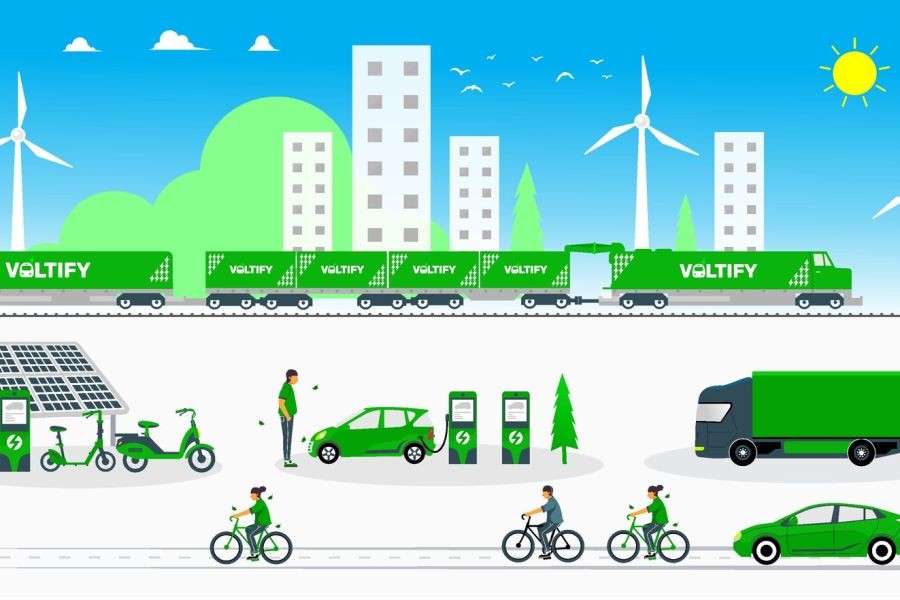In the global energy sector, a complex interplay of resources, geopolitical influences, and market strategies shapes the landscape. Australia and Russia, two significant players, each wield unique strengths and face distinct challenges in their quest for energy dominance. This article delves into the factors that define their influence, providing insights particularly relevant to Australian readers.
Australia's Energy Landscape: A Renewable Revolution
Australia has long been recognized for its abundant natural resources, particularly in coal and natural gas. However, recent shifts towards renewable energy sources have gained momentum. According to the Climate Council of Australia, 29% of Australia's electricity came from renewable sources in 2020, with projections suggesting a rise to 50% by 2030. This transition is driven by both government policies and market demands for cleaner energy.
The Australian government has implemented several initiatives to boost renewable energy adoption, including the Renewable Energy Target (RET) and support for solar and wind projects. This focus not only advances environmental goals but also positions Australia as a leader in the Asia-Pacific region for renewable energy. In comparison, Russia's energy strategy remains heavily reliant on fossil fuels, particularly oil and natural gas, which account for over 50% of its GDP.
Russia: Fossil Fuel Giant with Geopolitical Clout
Russia's energy influence stems from its vast reserves of oil and natural gas, making it one of the world's top producers. The nation's strategic use of energy exports as a geopolitical tool enhances its global influence. European countries, which depend heavily on Russian gas, are prime examples of this dynamic.
However, this reliance on fossil fuels poses significant risks. Global trends towards decarbonization and the European Union's push for energy diversification threaten Russia's long-term market stability. Despite this, Russia's strategic partnerships, such as the Nord Stream 2 pipeline, continue to bolster its position in the global energy landscape.
Case Study: Australia's Solar Energy Surge
Australia's push towards solar energy provides a compelling case study. The country experiences some of the highest solar radiation levels in the world, making solar power an attractive option. Solar capacity in Australia has surged, with the Australian Energy Market Operator (AEMO) reporting that rooftop solar contributed to 6.5% of electricity generation in 2020.
Companies like SunPower Australia have capitalized on this trend. By investing in innovative solar technologies and partnering with local governments, SunPower has increased its market share significantly. The company's strategic approach has not only boosted its revenue but also supports Australia's renewable energy objectives.
Comparative Analysis: Energy Policies and Economic Impact
Australia's energy policies emphasize sustainability and innovation, aligning with global environmental goals. The transition to renewables is expected to create jobs and stimulate economic growth. The Australian Bureau of Statistics (ABS) reported an 8% growth in the renewable energy sector in 2021, highlighting its economic potential.
In contrast, Russia's economic dependency on fossil fuels presents challenges. While its energy exports drive economic growth, they also expose the economy to global market fluctuations. The International Energy Agency (IEA) warns that without diversification, Russia may face economic instability as global energy demand shifts towards cleaner sources.
Pros vs. Cons: Australia's Renewable Focus
Pros:
- Environmental Benefits: Reduces carbon emissions and aligns with climate goals.
- Economic Growth: New jobs and investments in the renewable sector are driving growth.
- Energy Independence: Less reliance on imported fuels enhances security.
Cons:
- Initial Costs: High upfront investment for infrastructure and technology.
- Grid Integration: Challenges in managing intermittent renewable energy supply.
Future Trends and Predictions
As the world moves towards decarbonization, Australia's focus on renewables positions it for future success. The Australian Energy Market Operator forecasts that by 2040, up to 90% of electricity could come from renewable sources. This transition will not only enhance Australia's energy security but also its global standing in clean energy technology.
Conversely, Russia must navigate the challenges of a fossil fuel-dependent economy in a decarbonizing world. Its future influence will depend on its ability to diversify energy sources and invest in renewable technologies, a shift that is currently in its nascent stages.
People Also Ask (FAQs)
- How does Australia's renewable energy focus impact its economy? Australia's renewable energy sector is driving economic growth, with an 8% increase in 2021, as reported by the ABS.
- What are the challenges facing Russia's energy sector? Russia faces challenges due to its reliance on fossil fuels, with global trends pushing towards decarbonization.
- How can Australia maintain its energy influence? Continued investment in renewable technologies and infrastructure will be key to maintaining Australia's energy influence.
Final Takeaways
- Australia is advancing its renewable energy ambitions, setting the stage for long-term growth and sustainability.
- Russia's reliance on fossil fuels presents both opportunities and risks, influencing its geopolitical strategy.
- The transition to cleaner energy is a global trend, with significant economic and environmental implications.
In conclusion, Australia's strategic focus on renewable energy positions it for future global energy influence, while Russia's reliance on fossil fuels presents challenges in a decarbonizing world. For Australia, continued investment in clean energy technologies and infrastructure will be crucial in maintaining its energy dominance.
Related Search Queries
- Australia renewable energy policies
- Russia energy exports
- Global energy influence 2025
- Solar energy growth in Australia
- Fossil fuels vs. renewable energy






























ConradHaro
4 months ago